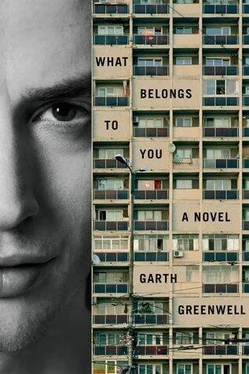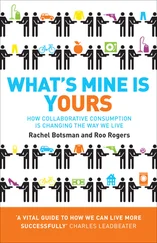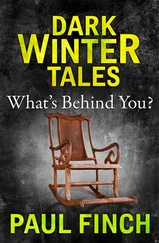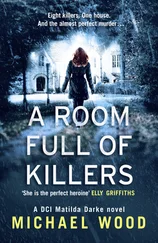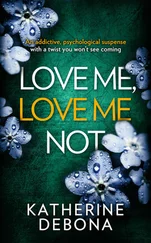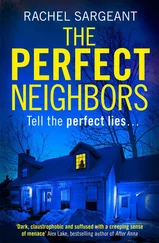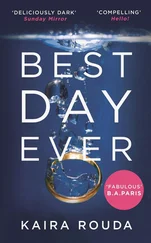I woke early the next morning and went for a walk on my own. The sun was just rising, the wind was chill and fresh and laced with salt. Mitko had told me that the hotel was close to the sea, and as I turned from our street into the main plaza, I gasped at the horizon of water framed grandly by the pillars at the entrance of the Sea Garden. I quickly got lost in this large park, wandering paths that seemed to lead toward the water only to veer away. I loved the silence of the morning, and also the solitude that seemed part of the design of the place, or rather the rhythm it established of solitude and conviviality, the narrow, wooded paths giving out suddenly onto plazas with benches gathered at observatory points over the sea, which was endless and gray and pierced ceaselessly by gulls. After the desolation of the landscape I had seen the day before, I was moved to be in a place designed so clearly with beauty in mind. The very layout of the paths, with their apparent aimlessness, seemed to rebuke the bare utility of the buildings we had passed on the bus. The park was built shortly after liberation, and as I wandered I came upon statues of revolutionaries and writers placed here and there along the paths. Some of their names were familiar to me, but not many of their stories, so that it was like walking a peculiarly lyrical account of the past, free of the usual narratives of triumph and loss. There were signs, too, in the darkest and most overgrown eddies, of the park’s other life, secret and ludic: cigarette butts and bottles and the occasional distended dry husk of a condom. They must have been left there the previous summer, when these paths would have been a carnival, filled with vacationers from across Europe, the beautiful young fueled by night and heat and the ever-present sea.
It was the sea I longed for now, after so much misdirection and delay. Again and again the staircases I encountered leading down from the garden’s observatories to the beach were cordoned off, in such crumbling disrepair as to prevent safe passage. I was aware of time passing and knew I should get back to the hotel, to Mitko who might be waking to find me gone. When I finally made my way down from the garden, I was frustrated to find that access to the water was blocked by a seemingly endless line of construction, complexes of restaurants and casinos and discotheques, all of them boarded up for the season, barricaded against sea and weather and, I assumed, the plundering hands that had covered these boards with graffiti. And yet, when I did find a way through these linked complexes, reaching not quite the beach yet but the road that ran alongside it, I turned away after only a few moments. The wind coming off the sea, unbroken by trees or by the buildings that had frustrated my approach, was too fierce to stand facing it for long. And I was fascinated by those buildings, now that I saw the other side of them, with their garish, amusement-park facades rising above their boarded windows. I could hear a radio playing faintly from within one of the restaurants, but there was no other sign of human presence, no voices or movement save for the cats that had improvised some habitation on the rooftops, where they watched me, disinterested and alert. There was a ghostliness about the whole strip, as if it had been abandoned for years. One restaurant wasn’t boarded up, I don’t know why, and I walked up the few steps to the deck to peer in through the glass, which was crusted with salt and sand. It was a place for children, a restaurant and playroom both, with figurines and coin-operated rides in the shapes of characters from American cartoons. These were wrapped in sheets of plastic, further blurring an image already blurred by the glass, so that they were grotesquely distorted; and for a moment, as I looked at these figures I associated with my childhood, it was as if they took on a kind of agonized life, like quarantined victims of some plague or like infants themselves, suffocating in plastic cauls.
Mitko was awake when I returned to the hotel, lounging and watching television, unperturbed by my absence, though he wanted to know where I had been and took my camera to scan through the photos I had taken. He knew every inch of the park, he said, he recognized each of the scenes on the screen, and he demonstrated this knowledge by describing for me what lay outside the frame. Later that afternoon he took me into the center, through its streets and squares, pointing out landmarks that were like miniatures of their counterparts in the capital: monuments to the same patriots, museums of history, of archaeology and ethnography, the Roman ruins and the central cathedral with its efflorescence of domes. Everywhere there were gulls, tame and inquisitive as cats, filling the squares with their cries. Mitko was hungry, and we stopped at a snack stand, a bakery selling cheese pastries and sausages and sweets of various kinds. We stood in the street to eat, a small pedestrian square lined on one side by the opera house, and soon we were accosted by one of these birds, who trotted intently before us, working the hinges of its bill and raising its wings as it cried. Mitko had ordered more food than he could eat, and he threw one of his scraps to this bird, which beat its wings to catch it in midair, tossing it back quickly and repeating its demands. Soon there were four or five of them hopping and calling, so that the air was full of opening doors. They delighted me, and Mitko fed my delight as he fed the birds, to the last scrap, after which he raised his hands in apology for having nothing left. As we continued our walk, Mitko told me stories about the places we passed, here the restaurant he frequented with Julien, here the scene of a nocturnal encounter, here the table outside of a dyuner stand where, drunk and brawling, he fell and struck his mouth, breaking his tooth. When it was dark, he said, he would take me to the thermal baths, pools where despite the cold we could lounge in the water together. And he wanted me to see his home, he said; the next morning we would take the bus to the blokove on the outskirts and I would meet his mother and his grandmother. I was surprised by this; I suppose he wanted to show me off, a foreigner, a teacher at a famous school, though how he would explain our acquaintance I had no idea.
Everywhere we went he greeted people by name, shaking their hands, patting their backs like a politician, an unaccountably public man. He gestured toward me in introduction, saying that I was his friend, an American, at which point I nodded politely and waited for the conversation to end. As we walked away from certain of these men, Mitko would lean into me and whisper a suggestion that we might all three have fun together, he could easily arrange it. But I wanted to be alone with Mitko, and I told him this later, back in the room when he suggested he call his friend, the one he called brat mi , who was, he assured me, as eager as Mitko himself for the three of us to meet. We would gather at the hotel, he said, and then go to the hot springs together. It was already early evening, night was falling, he said we could leave soon. But I want to be with you, I said, only with you, and he smiled and allowed himself to be dragged to the bed, where I tugged off his shoes, unbuttoned his pants and his shirt. He lay next to me, accepting my caresses, every now and then propping himself up to drink from the whiskey he had poured himself as soon as we got in, despite his illness and his pledge, he had told me, to drink less. He was watching television as well, flipping through channels until he stopped at a film, an American film dubbed in Bulgarian, as though to distract himself from what I was doing to him, so that I felt not only alone in my longing, but for the first time like an aggressor. When I pulled back from him, he reached down and started to stroke himself, slowly and with something like languor, even when he went soft maintaining the same regular motion of his arm.
Читать дальше
